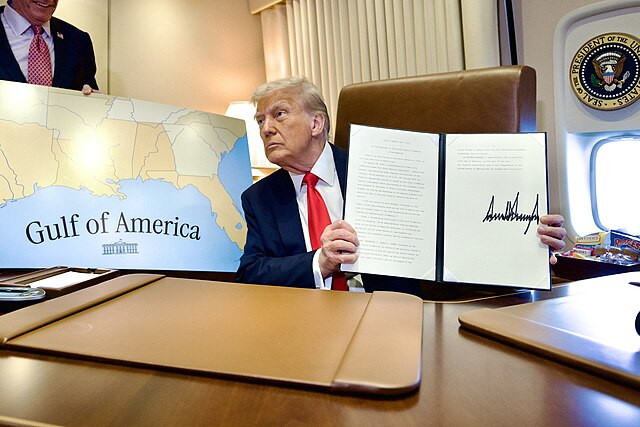President Donald Trump on Wednesday signed a sweeping travel ban barring entry into the United States for citizens of 12 countries and imposing partial restrictions on seven others, while exempting athletes and related personnel participating in upcoming global sporting events including the 2025 Club World Cup, the 2026 FIFA World Cup, and the 2028 Summer Olympics.
The proclamation, released late Wednesday and taking effect Monday at 12:01 a.m. Eastern Time, fully restricts nationals from Afghanistan, Myanmar, Chad, the Republic of Congo, Equatorial Guinea, Eritrea, Haiti, Iran, Libya, Somalia, Sudan, and Yemen. A second tier of countries-Burundi, Cuba, Laos, Sierra Leone, Togo, Turkmenistan, and Venezuela-faces limited entry restrictions.
The administration cited concerns over national security, vetting procedures, and cooperation on repatriation as the basis for the ban. The proclamation states that the identified countries "lack sufficient vetting and screening processes needed to detect foreign nationals who may pose safety or terrorism threats to the U.S."
However, the policy includes carve-outs for specific groups. Section 4 of the proclamation exempts "any athlete or member of an athletic team, including coaches, persons performing a necessary support role, and immediate relatives, traveling for the World Cup, Olympics, or other major sporting event as determined by the secretary of state."
The wording of the exemption leaves ambiguity. It is unclear whether the term "World Cup" applies solely to the 2026 FIFA men's tournament or also to the 2025 Club World Cup, which is set to take place in the United States. Players from affected nations currently slated to participate in the Club World Cup include Telasco Segovia, Jefferson Savarino, Roger Aholou, David Martínez, Mehdi Taremi, Matías Lacava, Kodjo Fo-Doh Laba, Josna Loulendo, Mohamed Awadalla, and Salomón Rondón-representing clubs from Venezuela, Togo, the Republic of Congo, Sudan, and Iran.
A FIFA spokesperson declined to comment when asked if the organization lobbied for the inclusion of the exemption. FIFA President Gianni Infantino has appeared repeatedly with Trump in recent months and was notably absent from the FIFA Congress to attend a meeting with the president during his Middle East tour.
The exemption may also affect international competitions currently underway. Venezuela, which is partially restricted under the new policy, has three players on its World Cup qualifying roster who play for MLS clubs. They are scheduled to face Bolivia and Uruguay in qualifying matches, just as the ban comes into effect.
The ban applies to foreigners who are outside the U.S. and lack valid visas as of June 9. U.S. permanent residents and travelers who can provide "clear and convincing evidence of identity and family relationship," including DNA documentation, are exempted.
Trump referenced the recent attack on Jewish protestors in Boulder, Colorado, in a White House video, blaming immigration vulnerabilities. The attacker, Mohamed Sabry Soliman, is an Egyptian national. Egypt is not listed among the countries affected by the ban.
This is the second time Trump has instituted a travel ban. His 2017 executive order barring travel from several Muslim-majority nations was upheld by the Supreme Court in 2018 and reversed by President Joe Biden in 2021.
Democratic lawmakers quickly condemned the renewed policy. "Make no mistake: Trump's latest travel ban will NOT make America safer," Sen. Ed Markey, D-Mass., posted on X. Sen. Adam Schiff, D-Calif., similarly decried the move, calling it discriminatory and dangerous.






